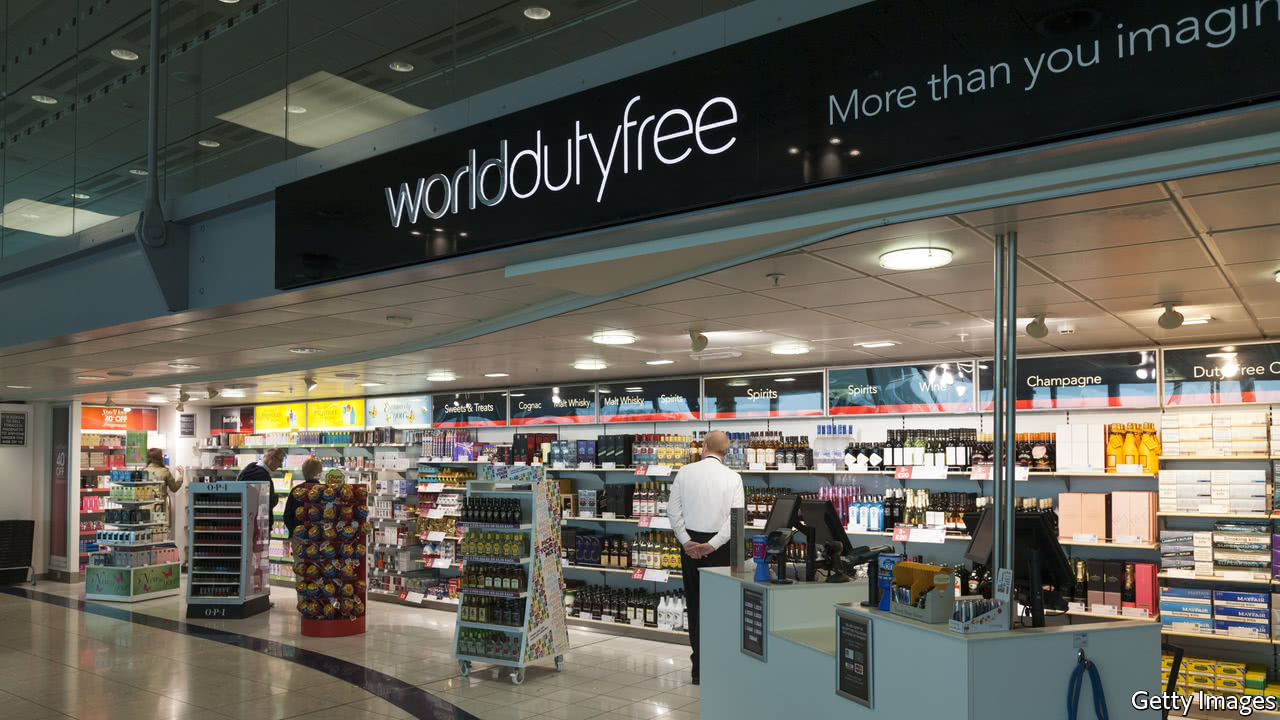
TRYING to stop Britons from boozing can be a forlorn task. Drinking has been woven into the nation’s culture for centuries, from the “loose-tongued” pilgrims of Chaucer to the apprentices who ran amok on London’s streets in the 16th century. According to Susie Dent, a lexicographer, English has 3,000 words for being drunk. Some take that list as a challenge. Whether at football matches or funerals, children’s parties or cheese-rolling, Britons turn almost any occasion into an excuse to get ramsquaddled (thanks, Ms Dent).
A visit to a British airport is a crash course in this culture. Regardless of the time of morning, the bars are full and the English breakfasts come accompanied with pints of Guinness. That is an increasing problem for airlines. According to a BBC investigation, 387 drunken passengers were arrested at British airports or on flights between February 2016 and February 2017, a 50% increase compared to the year before. A survey by Unite, a union, found that 20% of cabin crew members had suffered physical abuse at some point, often related to drunkenness. As one former flight attendant told the BBC: “People just see us as barmaids in the sky. They would touch your breasts, or they’d touch your bum or your legs. I’ve had hands going up my skirt before.”
-
Airlines want tighter control of alcohol sales in British airports
-
Where Britons go on holiday
-
Juha, the Middle East’s heroic everyman
-
Justice Kennedy will take centre stage during the Supreme Court’s upcoming term
-
The e-mail Larry Page should have written to James Damore
-
A dodgy dam in Canada’s east
One problem is duty-free booze, which is bought in the departure lounge and consumed on planes. There is a conflict between the interests of shops, which do not generally have to deal with the consequences of what they sell, and airlines, which do. Similarly, airport bars do not always call time on passengers who have had a skinful. A particular issue, according to Kenny Jacobs of Ryanair, is when flight delays prompt passengers to extend their session in the airport pub.
A code of conduct, which many airlines and airports signed up to last year, is supposed to prevent this. Airlines are expected to deny boarding to drunk passengers, for example, and duty-free shops are supposed to explain that the alcohol they sell must not be consumed on the plane. But the agreement is voluntary and apparently not being rigorously enforced.
As a result, some airlines have begun to take matters into their own hands. Jet2 has stopped selling drinks on some of its early-morning flights. Those who take Ryanair flights to Spain from Glasgow or Manchester are now told that they must put duty-free booze in the hold. Ryanair has also proposed that passengers be limited to two drinks per boarding pass in the airport, and that no alcohol should be available before 10am.
Gulliver is conflicted by all of this. As this blog has posited before, airports are one of only five places in which it seems acceptable to have a snifter before midday. (Sometimes, with hours to kill before a flight, a couple of Bloody Marys, some John Coltrane on the headphones and a well-stocked Kindle feels like the only civilised way to pass the time.) And the rate of drunk-and-disorderly passengers remains low. Yet flight attendants should not have to put up with drunks who treat them disrespectfully. Nor should fellow flyers have to share the cabin with the disruptors. If drinkers cannot exercise moderation and self-control, stricter rules to rein them in might be the only way to go.
Source: economist
Airlines want tighter control of alcohol sales in British airports